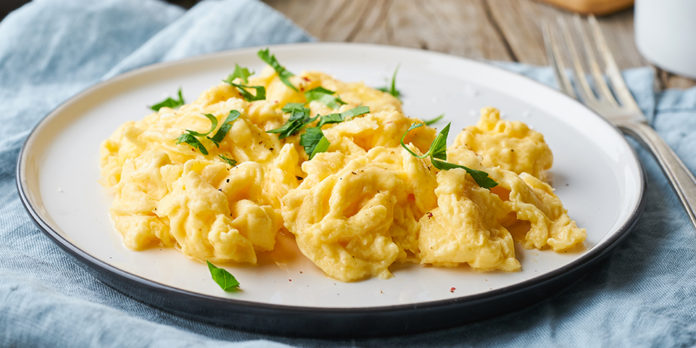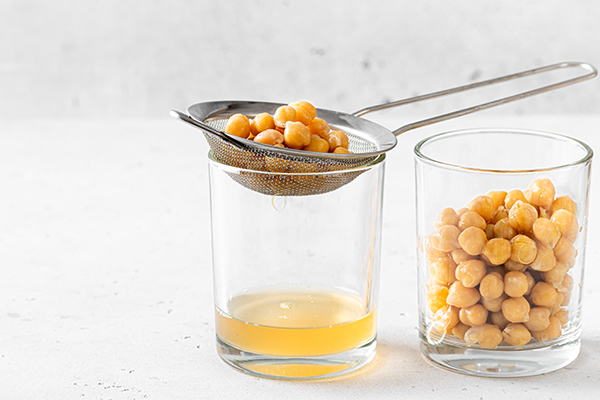Versatile and protein-rich, eggs are a breakfast staple and a key ingredient in baking.
But if you follow a vegan diet, have an egg allergy, or you’re looking to reduce your cholesterol intake, you may be considering making the switch to plant-based eggs.
As plant-based diets gain popularity, more and more vegan egg alternatives are making it to market.
Plant-based eggs mimic the texture and flavor of conventional eggs, but are they better for you — and for the earth?
Here’s what you need to know about egg alternatives.
What Are Plant-Based Eggs Made Of?
Plant-based eggs come in both liquid and powder form; the key ingredients vary from brand to brand.
For example, VeganEgg is made with organic soymilk powder. JUST Egg is a liquid plant-based egg made with mung bean, while the main ingredient in Bob’s Red Mill Egg Replacer is potato starch.
Volumizing agents and emulsifiers may be added to help recreate the fluffy texture of scrambled eggs.
Seasonings — like turmeric in JUST Egg, or nutritional yeast and black salt in VeganEgg — may also be added to mimic the flavor profile of eggs.
How to Use Plant-Based Eggs
Since plant-based eggs come in powdered or liquid form, which egg alternative should you choose?
That depends on how you plan to use or prepare it.
If you’re looking for a breakfast option to replace scrambled eggs, you’ll want to use a liquid form of plant-based eggs.
They’re convenient and pourable, and they typically contain emulsifiers that help to get that fluffy texture.
Vegan eggs in liquid form are also your best bet for recipes in which eggs are the star of the show, like a scramble or an egg cup.
On the other hand, if you’re looking to replace eggs in baked goods, a homemade or powdered option will be easier to work with.
If you use a liquid vegan egg for baking, you’ll need to adjust the water content in the recipe to accommodate the extra liquid.
Many powdered vegan eggs can also be reconstituted with water and used as a breakfast substitute.
How to Make Plant-Based Eggs
If you need an egg alternative in a pinch, you can make your own vegan eggs with just a few ingredients.
If you have aquafaba or flax seeds, you have everything you need to make a vegan egg alternative. Adrien Paczosa, R.D., L.D., CEDRD-S, a registered and licensed dietitian and founder of I Live Well Nutrition, suggests the following two methods:
Ground flax seeds
Mix one tablespoon ground flaxseed and three tablespoons water as a substitute for one whole egg
Aquafaba
Save the liquid that you normally drain off a can of chickpeas and use it as a substitute for egg whites. Three tablespoons of aquafaba equals one egg white.
Are Plant-Based Eggs Healthy?
Plant-based eggs definitely have some nutritional benefits, but there are a few things to consider before making the switch.
Conventional eggs are a whole food, whereas plant-based eggs are more processed and may contain stabilizers and additives, Paczosa says.
Plant-based alternatives also typically have less protein and more sodium. For example, a large egg has 70 calories, 6 grams of protein, and 65 milligrams of sodium.
A two-tablespoon serving of VeganEgg, by comparison, has 35 calories, 3 grams of protein, and 150 milligrams of sodium.
If you’re trying to limit your cholesterol intake, plant-based eggs contain zero cholesterol, compared to 207 milligrams in a large egg.
Alternatively, you can substitute two egg whites — which are also cholesterol-free — for a whole egg.
Bottom Line
Plant-based eggs can be a great alternative if you have an egg allergy or follow a vegan diet.
Just be sure to look at the ingredients list so you can choose an egg alternative that aligns with your health goals.
Want more expert nutrition tips and advice? Head over to BODNutrition.com to learn how Beachbody nutrition programs and products can help you lead a healthier lifestyle.



























